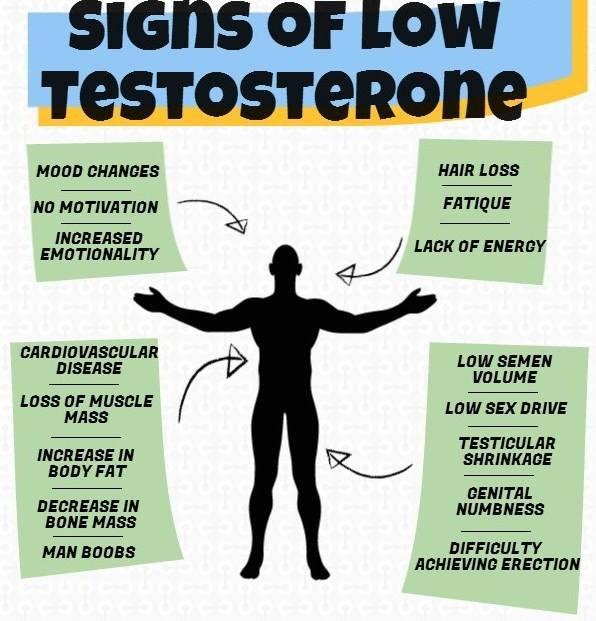In the quiet corridors of human physiology, where hormones orchestrate the symphony of our emotions and behaviors, testosterone often plays a lead role, particularly in men. Yet, when its levels wane, the echoes can reverberate far beyond the physical realm, reaching deep into the psyche. “” invites readers on a journey into this less charted territory, where the lines between mind and body blur, and the true essence of well-being is revealed. Through the lens of science and personal narratives, this article seeks to unravel the complex tapestry of emotional and cognitive shifts that accompany declining testosterone levels, shedding light on a topic that is as compelling as it is crucial for understanding the holistic nature of human health.
Unraveling the Emotional Maze: Understanding Low Testosterones Mental Toll
When testosterone levels dip, the mind can become a complex labyrinth of emotions, often leaving individuals feeling lost and overwhelmed. Low testosterone, often associated with physical symptoms like fatigue and muscle weakness, can also manifest in a myriad of psychological ways. These emotional impacts can be subtle yet profound, influencing everyday life and mental well-being.
- Mood Swings: Individuals may experience sudden and unexplainable changes in mood, from irritability to unexplained sadness.
- Anxiety: A sense of unease or worry can become more pronounced, often without a clear trigger.
- Depression: A pervasive sense of hopelessness or lack of interest in activities once enjoyed can take hold.
- Cognitive Fog: Difficulty in concentrating, forgetfulness, and a general feeling of mental sluggishness may emerge.
These psychological symptoms can create a ripple effect, impacting relationships, work performance, and overall quality of life. Understanding and addressing these mental aspects are crucial steps in navigating the emotional maze of low testosterone.

From Mood Swings to Motivation: How Hormonal Imbalances Shape Our Lives
Testosterone, often associated with strength and masculinity, plays a crucial role beyond just physical attributes. Low testosterone levels can subtly infiltrate the mental landscape, leading to a range of psychological challenges. Men experiencing reduced levels of this hormone may find themselves grappling with unexpected mood swings, fluctuating between irritability and despondency. Such emotional upheavals can affect daily interactions, clouding judgments and altering perceptions.
- Decreased motivation: A lack of drive and enthusiasm for activities once enjoyed.
- Increased fatigue: Persistent tiredness that can impact productivity and focus.
- Anxiety and depression: Heightened feelings of worry or sadness, often without a clear trigger.
Understanding these effects is essential, as they can sometimes be misattributed to external stressors or personal failings. Recognizing the link between hormonal imbalances and psychological health can empower individuals to seek appropriate interventions, fostering a more balanced and motivated life.

Navigating the Mental Health Landscape: Strategies for Coping with Low Testosterone
Understanding the psychological effects of low testosterone is crucial for devising effective coping mechanisms. One of the first steps is acknowledging the changes in mood and mental health. It’s common to experience symptoms such as depression, anxiety, and reduced motivation. Awareness is the key to identifying these issues early on. Once identified, adopting a proactive approach can make a significant difference. Consider the following strategies:
- Exercise Regularly: Physical activity not only boosts testosterone levels but also enhances mood by releasing endorphins.
- Mindfulness and Meditation: Practicing mindfulness can help manage stress and improve emotional resilience.
- Seek Support: Engaging with support groups or therapy can provide an outlet for expressing feelings and receiving guidance.
- Balanced Diet: A nutritious diet can support hormonal balance and improve overall mental well-being.
Implementing these strategies can foster a more positive mental state, helping individuals navigate the complexities of low testosterone with greater ease and confidence.

Empowering Change: Practical Steps to Mitigate Psychological Effects of Hormonal Deficiency
To address the psychological effects of low testosterone, individuals can adopt a multifaceted approach that incorporates lifestyle changes and professional guidance. Engaging in regular physical activity can naturally boost testosterone levels, improve mood, and reduce symptoms of depression. Exercise, particularly strength training and high-intensity interval training, has been shown to elevate hormone levels while also fostering mental resilience. Moreover, a balanced diet rich in zinc, vitamin D, and healthy fats can support hormonal health and stabilize mood fluctuations.
- Mindfulness and Stress Management: Practices such as meditation, yoga, and deep-breathing exercises can alleviate stress, which is known to exacerbate hormonal imbalances.
- Therapeutic Support: Engaging with a mental health professional can provide valuable strategies for managing anxiety and depression associated with hormonal deficiency.
- Sleep Hygiene: Ensuring adequate and quality sleep is crucial, as it plays a significant role in hormone regulation and mental well-being.
By integrating these practical steps into daily life, individuals can empower themselves to navigate the psychological challenges posed by low testosterone, fostering a healthier and more balanced state of mind.








